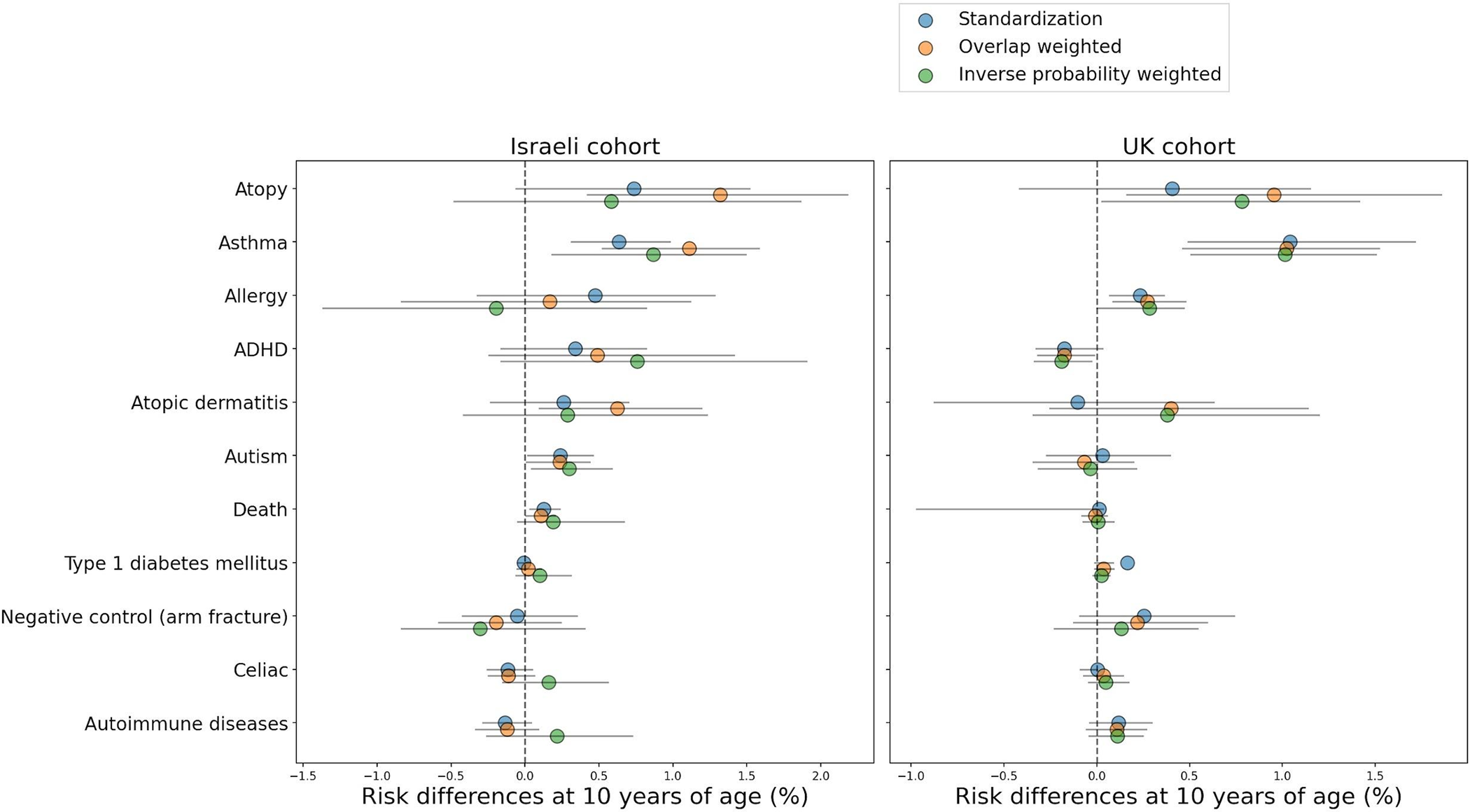Estimating the effect of cesarean delivery on long term childhood health across two countries
Ayya Keshet, Hagai Rossman, Smadar Shilo, Shiri Barbash-Hazan, Guy Amit, Maytal Bivas-Benita, Chen Yanover, Irena Girshovitz, Pinchas Akiva, Avi Ben-Haroush, Eran Hadar, Arnon Wiznitzer, Eran Segal
Assessing the impact of cesarean delivery (CD) on long-term childhood outcomes is challenging as conducting a randomized controlled trial is rarely feasible and inferring it from observational data may be confounded. Utilizing data from electronic health records of 737,904 births, we defined and emulated a target trial to estimate the effect of CD on predefined long-term pediatric outcomes. Causal effects were estimated using pooled logistic regression and standardized survival curves, leveraging data breadth to account for potential confounders. Diverse sensitivity analyses were performed including replication of results in an external validation set from the UK including 625,044 births. Children born in CD had an increased risk to develop asthma (10-year risk differences (95% CI) 0.64% (0.31, 0.98)), an average treatment effect of 0.10 (0.07–0.12) on body mass index (BMI) z-scores at age 5 years old and 0.92 (0.68–1.14) on the number of respiratory infection events until 5 years of age. A positive 10-year risk difference was also observed for atopy (10-year risk differences (95% CI) 0.74% (-0.06, 1.52)) and allergy 0.47% (-0.32, 1.28)). Increased risk for these outcomes was also observed in the UK cohort. Our findings add to a growing body of evidence on the long-term effects of CD on pediatric morbidity, may assist in the decision to perform CD when not medically indicated and paves the way to future research on the mechanisms underlying these effects and intervention strategies targeting them.
